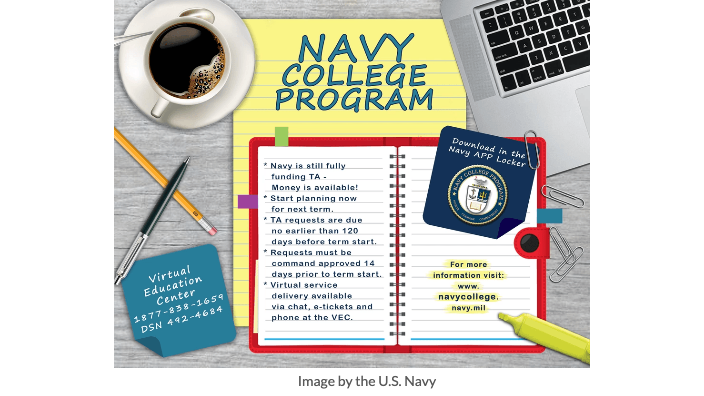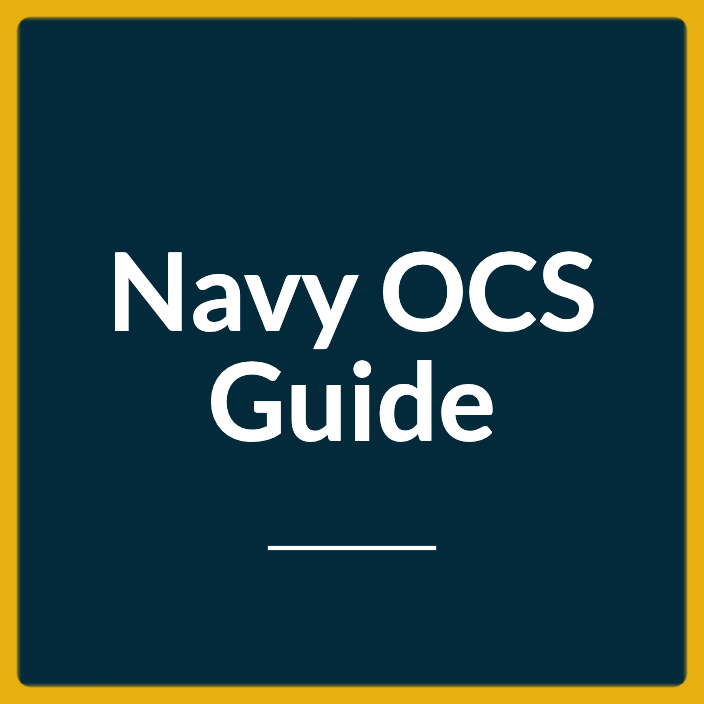Last Updated on March 4, 2024
Are you considering pursuing higher education while serving in the Navy?
The Navy College Program offers a wide range of opportunities for sailors and officers to further their education and advance their careers. However, navigating the program can be overwhelming without proper guidance.
The call to serve in the Navy brings its own sense of accomplishment and duty, but it’s also an avenue for personal and academic growth.
The Navy College Program offers a balanced approach to higher education while serving your country. It’s designed to support and assist sailors and officers in achieving their educational goals.
Whether you’re looking to earn a degree, get certifications, or receive vocational training, the program provides resources and guidance to help you make the most of your educational journey.
To make the most of the Navy College Program, it’s crucial to understand its various components and requirements.
This comprehensive guide will walk you through everything you need to know about the program, including eligibility criteria, available educational options, funding opportunities, and how to navigate the application process.
From Tuition Assistance to the Naval Academy, we’ll explore how you can chart a course to academic success while serving.
By equipping yourself with this knowledge, you can make informed decisions and take full advantage of the opportunities offered by the Navy College Program.
What Is the Navy College Program?

Navy College Program is a specialized educational program offered by the United States Navy to its service members.
It provides a wide range of educational opportunities and resources to support the personal and professional development of Navy personnel, including tuition assistance, counseling services, and access to accredited colleges and universities.
The program aims to enhance the educational qualifications and career prospects of Navy personnel, enabling them to pursue academic goals while serving in the military.
An Overview
The Navy College Program is a comprehensive set of initiatives tailored to support the educational aspirations of Navy officers and enlisted personnel.
Unlike conventional college experiences, this program adapts to the unique demands of military life, ensuring you don’t have to compromise your service commitments for educational advancement.
The Nuts and Bolts: Programs Within The Navy College Program
Tuition Assistance (TA)
This is one of the most used benefits within the Navy College Program. Tuition Assistance covers up to 100 percent of tuition costs for eligible courses, subject to certain limitations.
It’s essential to apply before the course start date and receives approval. Service members can use this for a wide range of educational endeavors, from vocational training to postgraduate studies.
Navy College Program for Afloat College Education (NCPACE)
NCPACE enables service members to continue their education even while deployed.
The program provides tuition-free courses, although some minor expenses for course materials may still apply.
It’s a great way to productively use your time at sea.
United States Naval Academy (USNA)
The USNA in Annapolis, Maryland, is one of the most prestigious educational institutions in the country.
It provides a four-year undergraduate program coupled with leadership training to prepare you for a career as a Navy officer.
Graduates are commissioned as officers and are required to serve for a specific period post-graduation.
Officer Candidate School (OCS)
Navy OCS is a 12-week course conducted in Newport, Rhode Island. It trains and evaluates candidates for leadership roles within the Navy.
Upon successful completion, candidates are commissioned as Navy officers and must meet specific service requirements.
Eligibility Requirements
Who Can Apply?
The Navy College Program offers something for almost every service member, but not everyone is eligible for every initiative.
- Active Duty Members: If you’re on active duty, most programs within the Navy College initiative are open for you. This includes the Tuition Assistance and NCPACE programs.
- Reservists: Reservists can also benefit from certain aspects of the program, although eligibility for Tuition Assistance may be more limited compared to active duty members.
- Navy Veterans: If you’ve completed your service but are looking at educational options, some benefits may still be accessible depending on your service record, such as using the G.I. Bill.
Qualifying Criteria
Eligibility isn’t a one-size-fits-all scenario. Here are some general criteria to consider:
- Rank and Tenure: Many programs like Tuition Assistance require you to have served a minimum of two years and be at a certain rank.
- Academic Performance: A high school diploma or GED is often the basic educational requirement. Some programs may demand a particular GPA for eligibility.
- Service Commitment: Programs like OCS and USNA usually entail a service commitment post-completion.
How to Apply for Navy College Programs
The Step-by-Step Guide
- Counseling Session: Your first move should be to consult a Navy College Education Counselor. They can guide you through the maze of options and help identify the best fit for you.
- Eligibility Check: Verify that you meet the prerequisites for your chosen program. This could include rank, service time, and educational background.
- Application Process: Depending on the program, you might apply online through the Navy College Program website or fill out paper forms. Documentation such as service records, transcripts, and sometimes, letters of recommendation may be required.
- Approval: The waiting game begins. Approval could be swift or might involve additional screening, interviews, or tests. Patience is key.
Funding: How Does It Work?
Financial Benefits
Tuition Assistance
- Up to 100 percent Covered: This can cover all of your tuition, but remember, there’s a cap.
- Annual Cap: As of my last update, the cap was set at $4,500 per fiscal year according to the official Navy website.
NCPACE
- Tuition-Free: The Navy covers the tuition costs, but you might need to shell out for course materials or exams.
Scholarships
- Specialized Scholarships: There are specific scholarships available to Navy personnel, like the Vice Admiral E.P. Travers Scholarship and the Admiral Mike Boorda Loan Program, which can offer financial aid outside of Tuition Assistance.
Distance Learning and Online Courses
The High Seas of Online Education
Even while you’re deployed, the Navy College Program has your educational pursuits covered through options like NCPACE.
- Course Availability: These aren’t just filler courses. From general education to niche subjects, you’ll find a course that aligns with your goals.
- Flexible Schedule: Most distance learning options offer the flexibility to study at your own pace, crucial when your primary job is serving your country.
- Accredited Institutions: Ensure the coursework is from regionally accredited institutions, ensuring that your efforts won’t go to waste.
Points to Consider
Before jumping into this educational journey, weigh your anchor and consider:
- Career Impact: How will this course or degree align with or enhance your naval career? Will it offer opportunities for advancement or specialization?
- Time Commitment: Juggling military duties and educational responsibilities can be a tightrope walk. Make sure you can commit to both without either suffering.
- Accreditation: Opt for accredited programs and institutions to ensure your educational efforts bear fruit in the civilian world.
Wrap-Up
The Navy College Program is an invaluable resource for Navy officers looking to propel both their military and academic careers.
With an array of programs, eligibility options, and financial benefits, there’s a strong chance you’ll find a program that meets your needs.
The sea of opportunity is full of promise. Navigate wisely, and you could set yourself on a course for success that benefits not just your Navy career, but your life beyond it.


